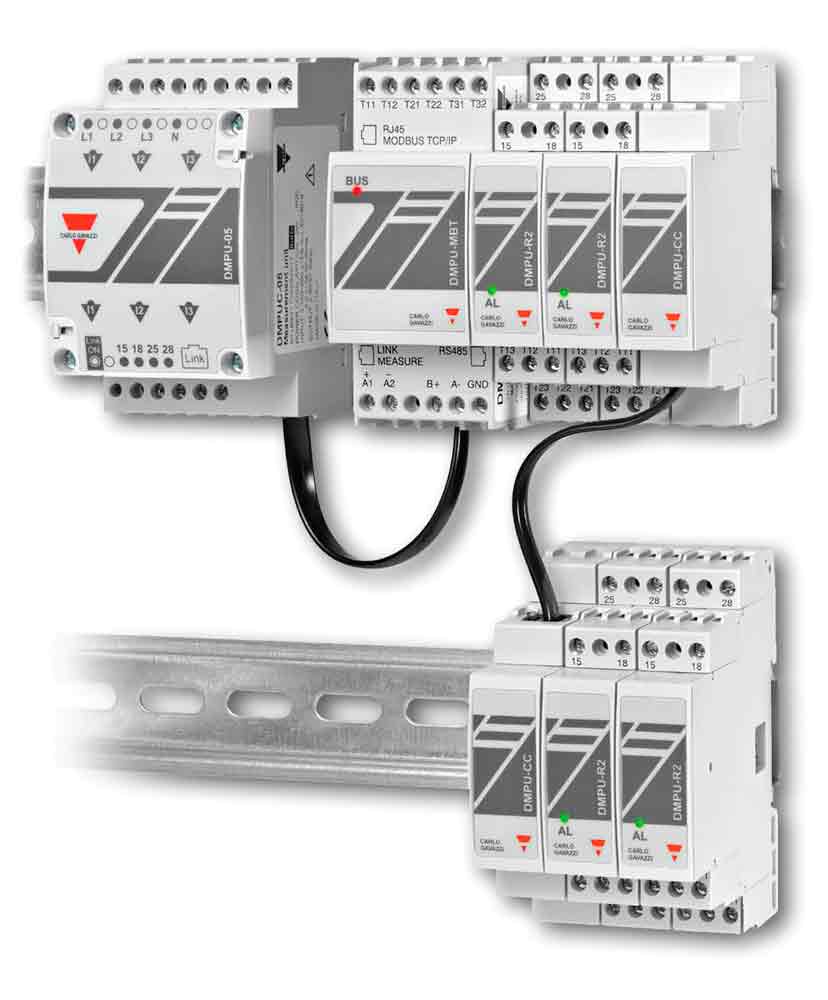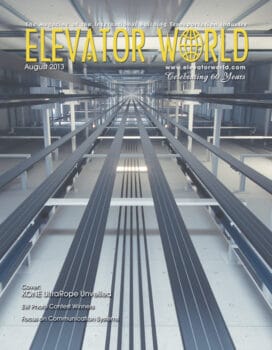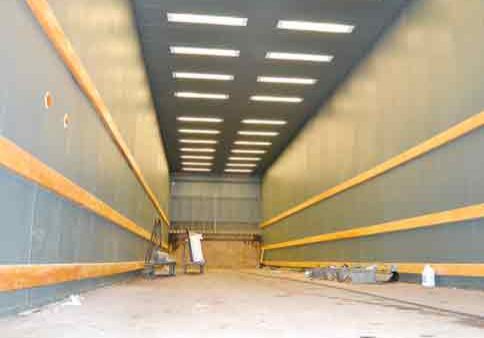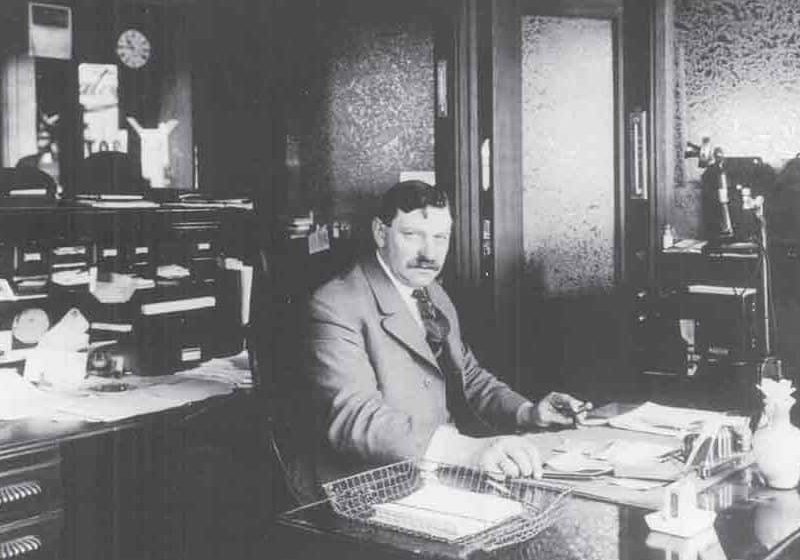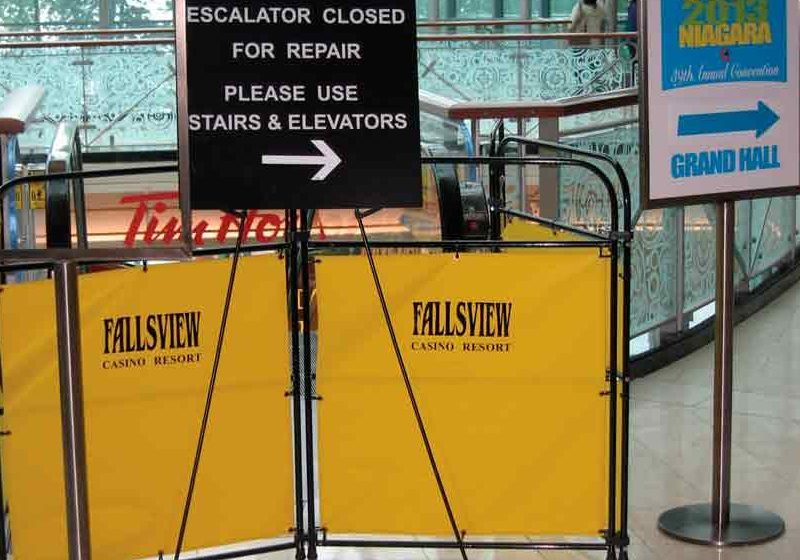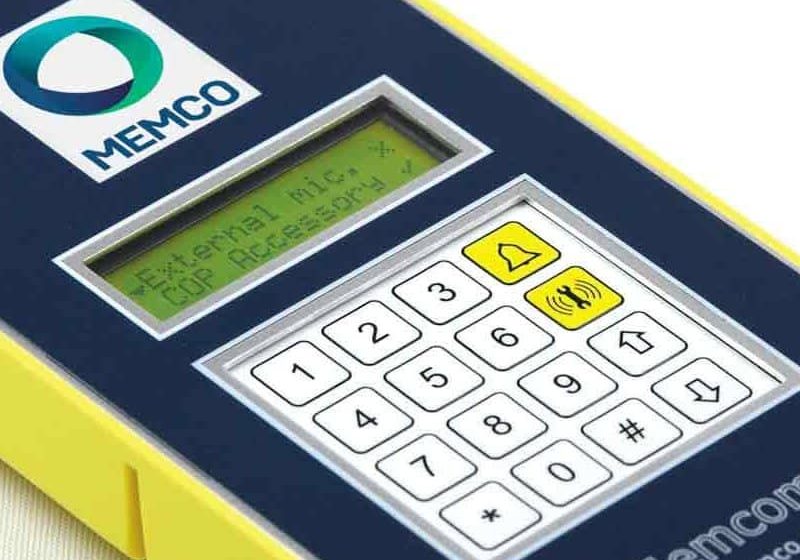Carlo Gavazzi Inc. has released DMPU, a new modular motor protection system. This evolution of its current-, voltage- and phase-monitoring devices is intended to complement the company’s other motor-control products but can be used with other manufacturers’ motor products. It also monitors harmonic distortion, power, energy, temperatures and earth-leakage current. The product implements several American National Standards Institute functions to protect the motor from operations that may damage it. Functions protected against include motor inverse current, locked or stalled rotor conditions and excessive number of starts per hour.
DMPU monitors and meters the performances of three-phase, constant or dual-speed AC induction motors. It is designed for motors in sensitive positions, where failure is costly. It also monitors motor overload through thermal imaging and can control it. The modularity aspect of the product allows selection of the necessary features for specific applications, translating into minimal space requirements for basic installations and various mounting configurations. Trends of selected variables can also be stored, and the DMPU datalogger can aid in troubleshooting.
For more information, contact Carlo Gavazzi at 750 Hastings Lane, Buffalo Grove, Illinois 60089; phone: (847) 465-6100; fax: (800) 222-2659; e-mail: [email protected]; or website: www.GavazziOnline.com.
Imperial Electric Acpm Gearless Machine
Imperial Electric, an elevator motor and machine manufacturer, has introduced its new 527 ACPM Gearless Machine with 30% more lifting capacity without an increase in machine size. The new unit is the company’s latest addition to its 500 Series ACPM machine line. Capable of lifting up to 4500 lbs. and traveling up to 450 fpm, it handles either six ropes (5/8-in.-diameter each, single wrap) or seven ropes (1/2-in.-diameter each, single wrap). Its 25-in. sheave diameter has a shaft load of up to 22,000 lbs.
The 527 AC permanent-magnet (PM) gearless machine does not require oil for lubrication, and features a 24% reduction in overall power consumption, 17% reduction in heat impact and 22% reduction in noise impact. Its design is suitable for modernizations of units with large car capacities, such as hospitals.
For more information, contact Imperial Electric at 1503 Exeter Road, Akron, Ohio 44306; phone: (330) 734-3600; fax: (330) 734-3601; email: [email protected]; or website: www.imperialelectric.com.
Seismic Fishplates With Low Clearances
Smart Elevator Tech, LLC has released its Low-Profile Fishplate™ for 15-lb./ft. guide rails. Intended for Seismic Risk Zone 2 or greater, the product is engineered to fit tight clearances (at least 1 in. at the back of the guide rail to a wall or beam). It fits standard hoistways for seismic and non-seismic installations or narrower hoistways for the same elevator capacities. The device was designed for seismic retrofits with tight clearance to existing walls and beams without rail removal. Code conformance includes ASME A17.1, 1996-2013 versions. Two bolt lengths are available, to accommodate both modern counterbored rails and older non-counterbored rails.
The company also offers a seismic fishplate for 18- and 22-lb./ft. rails intended for the same seismic risk zones. These require a 1.25-in. clearance and are certified to meet A17.1 1996-2013 requirements for the heavier, 22-lb./ft. rail.
For more information, contact Smart Elevator Tech at phone: (415) 819-5744, e-mail: [email protected] or website: www.smartelevatortech.com/LPFP.htm.
Specialized Phone For Hearing Impaired
Being trapped in an elevator can be a frightening and stressful experience. It is even more so for the hearing impaired since the elevator phone – the only lifeline to the outside world – often becomes difficult to use. To tackle the issue of communicating clearly with the hearing impaired, Janus Elevator Products’ R&D team has designed a new product that meets both Americans with Disabilities Act (ADA) laws and American Society of Mechanical Engineers code requirements.
The newest addition to the Janus Electronic Micro Systems (EMS) phone line, the PSL-WD, is a stainless-steel phone with a dot-matrix display, which gives elevator passengers the ability to read emergency messages. The LED screen also allows the passenger to take action in accordance with the dispatcher’s displayed messages on the phone.
The operator answering the call is able to interface with the phone and display preprogrammed messages in the elevator cab. Instructions like, “Call in progress, please stand by,” “Please press the button to acknowledge entrapment” and “Stay calm, help is on the way” are just a few of the 10 possible messages that can be programmed into the phone. A custom default message, such as a greeting or building information, can also be programmed for continual scrolling until an emergency message is triggered. The ability to instruct trapped passengers with these messages not only offers reassurance, but also helps ensure they take appropriate action.
This type of EMS phone extends emergency communication to the disabled. Providing a clear messaging system that allows the trapped passenger to read important information that might otherwise not be heard can make a difficult situation safer and less stressful. Current ADA law does not require this type of display on an emergency phone, but as revisions are issued the scope typically expands to include more assistive technologies.
For more information, contact Janus toll free: (800) 527-9156, e-mail: [email protected] or website: www.januselevator.com.
Wireless Emergency Elevator Communications
As traditional phone lines have become more expensive and harder to find, new forms of cost-effective communication paths have filled the gaps. In the elevator industry, passengers rely on elevator phones in case of entrapments or emergencies. For elevator owners, monthly costs for phone-line services are usually inconvenient. Until recently, many elevator owners were limited to voice over Internet Protocol (VoIP), private automatic branch exchange (PABX) and traditional phone lines. However, global systems for mobile (GSM) communication technology are now available for the elevator industry and can offer economical and practical solutions.
While VoIP and PABX systems are alternatives to traditional phone lines, they are limited and not ideal for some small and medium-size applications. On the other hand, GSM phone lines are reliable, dedicated and flexible. For single-use applications up to multiple elevators, GSM technology allows for phone lines for individual elevators. This gives each elevator a dedicated and independent communication path that is completely isolated. An Internet connection or other third-party device is not required. The Elevator Connect 1000 from ESRM Communications can be used to replace standard phone lines without compromising reliability or code requirements.
GSM technology is designed to be easy to install, provide a quicker turnaround than other phone lines and be more flexible. VoIP systems can be complicated to install and set up, and they rely on an Internet connection, whereas the Elevator Connect 1000 GSM provides more of a plug-and-play installation. The installation does not require conduit and wire to be run from the telephone room to the machine room. Elevator contractors can now mount the wireless communication interface next to the elevator controller or in the elevator hoistway, then pipe directly to the elevator controller or junction point. This can provide reduced turnaround and cost savings.
While connecting wireless to the outside world on the GSM network, the Elevator Connect 1000 still connects with two wires to the elevator phone. This provides reliable 48-VDC line power and dial tone. In addition, there is a built-in lithium-ion battery that delivers 10 hr. of backup battery in case of power failure. (ASME A17.1b-2009 requires a 4-hr. battery backup.)
ESRM Communications’ product-development team has harnessed GSM technology to be compatible with modern elevator phones compliant with Americans with Disabilities Act guidelines. Years of research and modifications went into making the Elevator Connect 1000, a nonproprietary phone line specifically for the elevator industry. It was also designed to meet and exceed ASME A17.1b-2009 codes.
The Elevator Connect 1000 has been used in the field for more than three years by such companies as Viking Electronics, Inc.; K-Tech International; and Janus Elevator Products Inc. ESRM Communications can provide complete, closed-loop emergency-communication systems that can be remotely monitored and tested through its Underwriters Laboratories-listed, 24/7 monitoring and answering call center.
For more information, contact ESRM Communications at 1114 Northeast 4th Avenue, Fort Lauderdale, Florida; phone: (954) 825-3226; e-mail: [email protected]; or website: www.esrmphones.com.
Wurtec Communication Equipment
Wurtec’s S3 line of communication equipment is designed specifically with the elevator industry in mind. The S3C can be programmed through its onboard keypad and is compliant with Americans with Disabilities Act (ADA) guidelines. For modernization and service projects, Wurtec’s S3C can be installed on projects with only phone-line power. For projects with multiple phones sharing a single line, the S3C building-powered version allows users to share up to eight S3 Communicators on a single phone line.
The S3C is a suitable solution for buildings that require emergency phones capable of calling an outside line. Coupled with Wurtec’s S3C Master Station, users have both an emergency phone and intercom system. In addition, the following can be included in an S3C installation: master station, lobby station, and ceiling-mounted intercom boxes.
Wurtec’s Line Powered S3C phones are easily installed, powered by a phone line only and do not require another power source. Additional features include:
- Shortcut program buttons for programming
- Onboard keypad for programming and placing calls
- Reset to factory defaults
- Programmable conversation time, volume control and ring count
- Digital message recording
- Programmable with a 9-V battery or telephone line
The company’s Building Powered phones/intercoms serve as alternatives to its Line Powered phone. The S3C Building Powered Phone is a phone and intercom in one. It is powered by 12-24 VAC/VDC and includes a 110 VAC to 12 V isolated transformer. This allows multiple phones to share one phone line. Like the line-powered phone, the building-powered phone is intended for easy installation and is compliant with ADA guidelines. Additional features include:
Continuous internal-maintenance functions to check battery life, phone-line test and external building power failure. When the tests fail, the S3C will announce it in the car or (with certain model phones) trigger an alarm.
- Four-hour battery backup
- Line sharing up to eight phones per line
- ADA phone and intercom functionality when used with the S3C Master Station
For 2009 and later code compliance, the S3C Building Powered Line can be used in conjunction with the S3 Communication Alarm (S3CA). The S3CA is a building-powered device designed to work in conjunction with the S3C. The S3CA offers remote alerts, both audibly and visually, during the event of a phone-line failure. The S3CA is attached to the S3C in the elevator by a single pair of wires. The S3C and the S3CA are preprogrammed to work with each other. If the phone line has failed for at least 15 min., the S3CA will beep and illuminate an LED every 30 s. until the problem is fixed or the override switch is engaged. If only the override switch is engaged, the beep is silenced for 24 hr. If the problem persists, the S3CA will begin to beep again. If the problem is fixed within 24 hr., the S3CA will automatically reset itself to monitor the next instance.
For more information, contact Wurtec toll free: (800) 837-1066 or visit website: www.wurtec.com.
Get more of Elevator World. Sign up for our free e-newsletter.
